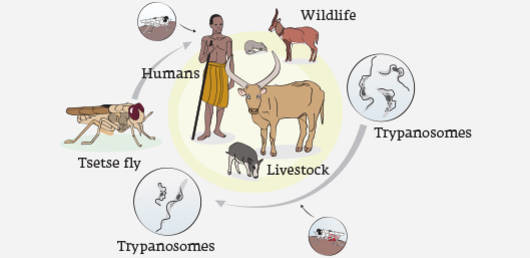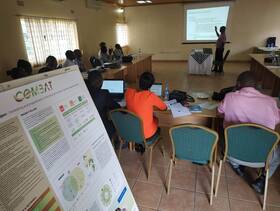Vision
An African continent where trypanosomoses no longer constrain sustainable agriculture, rural development nor do they threaten human health.
Mission
Assist affected countries in lifting the constraints that tsetse-transmitted trypanosomoses pose to the attainment of the sustainable development goals, including ending poverty and hunger, ensuring health and gender equality, and combating climate change and its impacts.









